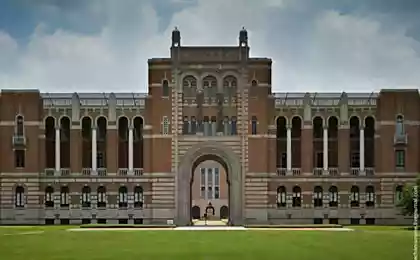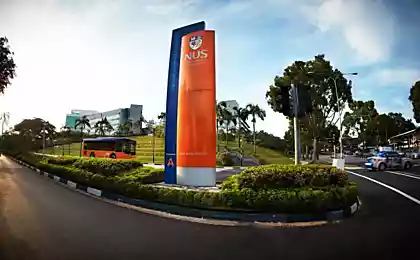546
How to obtain a certificate of degree in a foreign University
Thirty two million four hundred forty thousand five hundred fifteen
A year ago I decided to get the certificate of master of law international qualification (LL.M). Now I am a student at University of East Anglia. Working in the legal field for quite some time, and in recent years – often "in-house" in foreign companies. Therefore, it is necessary to learn constantly, one only of Russian law was insufficient. I'm sure this problem colleagues face often, so I want to introduce something like "instructions for use" for the lawyer who wants to improve their skills. Snakegod. Yes, obtaining additional education may not be a spontaneous decision. The admissions process at most universities starts in almost a year, at prestigious institutions acceptance of applications can be finished already in March of that year, when it is assumed beginning of the study. If you have difficulty, you can use the service of legal services. Budgetor zero to infinity, in my case it is 8 000 RUB IELTS (English language testing) and 8 000 pounds for the course. In General, the tuition cost 10,000 pounds (not seen below) to $40,000 and above. UK universities are wonderful because they have the opportunity to receive grants, including 100% exemption from tuition. The choice of the learning Quest, I started with the site where you can find information on all universities, outstanding LL.M. Ratings, it is not always representative, but the source is convenient because it gives an excellent a selection of countries. To start start with geography. American law schools, first, expensive, second, the training lasts two years, which significantly complicates the organization (for example, I went to study with the son-the schoolboy, and to organize a year of absence in school is much easier than two). Thirdly, I was more interested in international (and European) law, so the British school was the most logical choice. For the same reasons (price, specialization) were rejected and Australian universities, although in fairness it should be noted that on the continent there are many decent places to study. Specializaciya choice – antitrust, so after researching British universities in my list there are about a dozen universities offering such programs. In the subsequent selection helped me a lot the ratings of Guardian — a detailed study, including student satisfaction, demand among employers, the ratio of teachers and students, etc. the First five are obvious – Cambridge, Oxford, London school of Economics and other universities. To be honest, I had not considered. First, very high requirements to the language (at least 7.5 points; not every Englishman can score a point). Second, the training cost — 18 000 GBP per year and above; because the universities and so in demand, it is virtually impossible to grant. No grants for foreign students to the universities of Wales and Scotland.There is another important reason to keep his ego and study the TOP 20, not TOP 5. Training in a different environment is stressful. And the higher the bar, the stress is higher. Just as good universities usually have programs to support students (for example, there is even a therapist for very experienced and someone like the classroom teacher who is willing to help on all issues. Plus a separate office for the support of foreigners, working from morning to late evening, and the student ambassadors, a kind of "bridges" between the University administration and other students). However, to fall below the first page of the top is not worth it – unfortunately, the UK was not spared the scandals in the education sector: in a little-known or too cheap universities (below 12 000 pounds a year for London), students sometimes encounter teachers, bad English speaking, bankruptcy in the middle of the school year or just a refusal of a visa, as well as training in an undisclosed location looks to the visa officer as illegal immigration. So in the final I came up with University of Southampton, City University of London, University of Reading, Queen Mary University of London and University of East Anglia. All have a course on international competition law (usually in conjunction with international commercial), all have consistently high ratings, all have experience of reception and adaptation of foreign students. It should be noted that in most universities the admission process is the same. It consists of filling in online questionnaires, collecting, and direction of the recommendations, translation of diplomas and provide the results of language tests. Tests British universities accept different certificates (details best to check with each specific school), but academic IELTS is accepted just everything. In the group under consideration (TOP 5-20) plain language requirements 6.5 – 7 points, and some have additional requirements for individual components (for example, writing not lower than 6.5 or 7). Small (0.5) the deviation of the points from the required stendart will not be grounds for denial of enrollment, but may be cause for conditional admission: the applicant will be required at the time of registration to retake the exam or to purchase a precession course (3-5 weeks of language courses at the University), the cost of which sometimes reaches one-third of the annual cost of education. So our next goal – passing score of IELTS (or other examination). 6.0 – 6.5, I feel that this is the level which is spoken by the majority of lawyers working with foreign companies. That is, on the one hand, if you are already working with English documents, or customers, it will last a couple of months on polishing skills, but without grinding in most cases is not enough, as any test is not only knowledge but also the ability to match the format. In the network — many resources for test preparation and their specifics, so the training we won't. The following is important:— the test Results are given five free copies, and some universities have access to the results online, so admission to several universities will cost more than one. In the process of interaction with the admission committees it turns out a lot of interesting details that affect the final choice. The test results are ready after 14 days and this period must be considered when planning. Enrollment Opens well before the start of the school year (usually in autumn), but some details appear only in the spring. For example, in autumn and winter, many stated the training cost for the previous year, and the actual price will be on 2 000 — 4 000 pounds per year higher than the previous. Why is it necessary to apply for in advance? First, decent universities quickly come to an end (i.e. where I study, only 120 of future masters from around the world. Not so much, right?) Second, only after filing you can write an application for a grant, the deadline for which is also limited. And third, the receipt of a proposal from the University is not the end of our task. To choose the right place to study is only the beginning. In addition to formal data (name, age, education, etc.), applications include: a) a certified translation diplomas) recommendations.Diplomas I recommend you to transfer either by, or in the very respected translation Agency (as a lazy run the risk of free circulation of translators rights, law, and other terminology important to your University). Recommendations are of two types. The first group is academic, that is, recommendations from your professors, supervisors of dissertations, etc. Usually you are expected to have two academic recommendations. And adults for lawyers this can prove to be a problem – not everyone lives in the cities where he studied, and not all teachers can be found. But if it took a few years after graduation, then one recommendation may be from a present or former employer, lawyers who can characterize you as a professional or public organizations that can attest to your interest in the chosen subject.It is very important to honestly relate to the selection of references: most universities do not accept scans, and direct links to fill directly these people. Although honesty, in my opinion, does not exclude reasonable assistance in the preparation of the template recommendations. Even if you were the favorite student of Professor 10 years ago, not the fact that he remembers details of your thesis. Who appreciate you or HR Director knows the names of the branches of law. So, profiles on the sites are filled, recommendations are collected, test results received and forwarded to the universities. Within 2-4 weeks after that comes an offer from the University. They are of two types – conditional and unconditional. Unconditional means that you are accepted. Conditional – you must provide additional data, to retake a language test or undergo 3-5 week course of language training. Usually you must accept the offer through a special online form (don't worry, you can always change your mind and revoke it). Only after receiving suggestions, you can apply for a grant /scholarship/scholarship and here begins the most interesting. The manipulation of information does not surprise anyone, but every time I wondered, when it was found, for example, claimed that on the main page scholarship "in the amount of 5,000 pounds for all received this year in the master", was in the end a small discount only for citizens of Turkey and India, received an MBA. And this is another reason why it makes sense to review several universities – honesty with candidates and the adequacy of information is important for me criteria. Most universities publish information on grants and terms of receiving them on the site (obviously, the clarity and consistency of the site – this is another reason to prefer some universities to others – because you learn in your chosen). Some universities provide information about the timing and criteria for awarding grants to students individually – not too lazy to check your mail, the deadline for submission is sometimes very hard. This is usually a discount on tuition fees (on average about one third), but there are universities where there are 100 % grants, that is, in case of receiving to learn you will be there for free. I've experienced two types of applications for General academic success (this is something like a contest diplomas plus explanation-essay why choose this course as your studies will help you in the career that will get the society) and the competition of student works. For one of the grants had to write an essay of 3,000 words on a clearly defined topic (3,000 words – the usual amount of course work). My STATISTICA received proposals from five of the selected five universities, four applied for the grant, three received, while in the City University of London it was a 100 % grant, the rest – a substantial discount on the payment. The final choice If you have applied in January-March and live in large cities, in addition to the cost of training (and availability of grants), the reasonableness and affordability of the University website, its rankings, staff willingness to help you and answer your questions, you have the option to use another criterion for decision — meetings with representatives of universities. In Moscow, Saint-Petersburg, Novosibirsk and some other cities come spring representatives of universities with study programs. Information on the website of the British Council in Russia, by subscribing to the updates of the universities on Facebook, or receiving an invitation email from your admissions. Highly recommend to those meetings to go – all doubts are dispelled completely, it is possible to set academic and personal issues and just feel the spirit of each institution. They are very different. If you have received and accepted several proposals, the final choice should be done at least 5-7 weeks prior to the study, as there is still a visa, this year visa procedures for students have become more complicated.
Source: ecowars.tv/
A year ago I decided to get the certificate of master of law international qualification (LL.M). Now I am a student at University of East Anglia. Working in the legal field for quite some time, and in recent years – often "in-house" in foreign companies. Therefore, it is necessary to learn constantly, one only of Russian law was insufficient. I'm sure this problem colleagues face often, so I want to introduce something like "instructions for use" for the lawyer who wants to improve their skills. Snakegod. Yes, obtaining additional education may not be a spontaneous decision. The admissions process at most universities starts in almost a year, at prestigious institutions acceptance of applications can be finished already in March of that year, when it is assumed beginning of the study. If you have difficulty, you can use the service of legal services. Budgetor zero to infinity, in my case it is 8 000 RUB IELTS (English language testing) and 8 000 pounds for the course. In General, the tuition cost 10,000 pounds (not seen below) to $40,000 and above. UK universities are wonderful because they have the opportunity to receive grants, including 100% exemption from tuition. The choice of the learning Quest, I started with the site where you can find information on all universities, outstanding LL.M. Ratings, it is not always representative, but the source is convenient because it gives an excellent a selection of countries. To start start with geography. American law schools, first, expensive, second, the training lasts two years, which significantly complicates the organization (for example, I went to study with the son-the schoolboy, and to organize a year of absence in school is much easier than two). Thirdly, I was more interested in international (and European) law, so the British school was the most logical choice. For the same reasons (price, specialization) were rejected and Australian universities, although in fairness it should be noted that on the continent there are many decent places to study. Specializaciya choice – antitrust, so after researching British universities in my list there are about a dozen universities offering such programs. In the subsequent selection helped me a lot the ratings of Guardian — a detailed study, including student satisfaction, demand among employers, the ratio of teachers and students, etc. the First five are obvious – Cambridge, Oxford, London school of Economics and other universities. To be honest, I had not considered. First, very high requirements to the language (at least 7.5 points; not every Englishman can score a point). Second, the training cost — 18 000 GBP per year and above; because the universities and so in demand, it is virtually impossible to grant. No grants for foreign students to the universities of Wales and Scotland.There is another important reason to keep his ego and study the TOP 20, not TOP 5. Training in a different environment is stressful. And the higher the bar, the stress is higher. Just as good universities usually have programs to support students (for example, there is even a therapist for very experienced and someone like the classroom teacher who is willing to help on all issues. Plus a separate office for the support of foreigners, working from morning to late evening, and the student ambassadors, a kind of "bridges" between the University administration and other students). However, to fall below the first page of the top is not worth it – unfortunately, the UK was not spared the scandals in the education sector: in a little-known or too cheap universities (below 12 000 pounds a year for London), students sometimes encounter teachers, bad English speaking, bankruptcy in the middle of the school year or just a refusal of a visa, as well as training in an undisclosed location looks to the visa officer as illegal immigration. So in the final I came up with University of Southampton, City University of London, University of Reading, Queen Mary University of London and University of East Anglia. All have a course on international competition law (usually in conjunction with international commercial), all have consistently high ratings, all have experience of reception and adaptation of foreign students. It should be noted that in most universities the admission process is the same. It consists of filling in online questionnaires, collecting, and direction of the recommendations, translation of diplomas and provide the results of language tests. Tests British universities accept different certificates (details best to check with each specific school), but academic IELTS is accepted just everything. In the group under consideration (TOP 5-20) plain language requirements 6.5 – 7 points, and some have additional requirements for individual components (for example, writing not lower than 6.5 or 7). Small (0.5) the deviation of the points from the required stendart will not be grounds for denial of enrollment, but may be cause for conditional admission: the applicant will be required at the time of registration to retake the exam or to purchase a precession course (3-5 weeks of language courses at the University), the cost of which sometimes reaches one-third of the annual cost of education. So our next goal – passing score of IELTS (or other examination). 6.0 – 6.5, I feel that this is the level which is spoken by the majority of lawyers working with foreign companies. That is, on the one hand, if you are already working with English documents, or customers, it will last a couple of months on polishing skills, but without grinding in most cases is not enough, as any test is not only knowledge but also the ability to match the format. In the network — many resources for test preparation and their specifics, so the training we won't. The following is important:— the test Results are given five free copies, and some universities have access to the results online, so admission to several universities will cost more than one. In the process of interaction with the admission committees it turns out a lot of interesting details that affect the final choice. The test results are ready after 14 days and this period must be considered when planning. Enrollment Opens well before the start of the school year (usually in autumn), but some details appear only in the spring. For example, in autumn and winter, many stated the training cost for the previous year, and the actual price will be on 2 000 — 4 000 pounds per year higher than the previous. Why is it necessary to apply for in advance? First, decent universities quickly come to an end (i.e. where I study, only 120 of future masters from around the world. Not so much, right?) Second, only after filing you can write an application for a grant, the deadline for which is also limited. And third, the receipt of a proposal from the University is not the end of our task. To choose the right place to study is only the beginning. In addition to formal data (name, age, education, etc.), applications include: a) a certified translation diplomas) recommendations.Diplomas I recommend you to transfer either by, or in the very respected translation Agency (as a lazy run the risk of free circulation of translators rights, law, and other terminology important to your University). Recommendations are of two types. The first group is academic, that is, recommendations from your professors, supervisors of dissertations, etc. Usually you are expected to have two academic recommendations. And adults for lawyers this can prove to be a problem – not everyone lives in the cities where he studied, and not all teachers can be found. But if it took a few years after graduation, then one recommendation may be from a present or former employer, lawyers who can characterize you as a professional or public organizations that can attest to your interest in the chosen subject.It is very important to honestly relate to the selection of references: most universities do not accept scans, and direct links to fill directly these people. Although honesty, in my opinion, does not exclude reasonable assistance in the preparation of the template recommendations. Even if you were the favorite student of Professor 10 years ago, not the fact that he remembers details of your thesis. Who appreciate you or HR Director knows the names of the branches of law. So, profiles on the sites are filled, recommendations are collected, test results received and forwarded to the universities. Within 2-4 weeks after that comes an offer from the University. They are of two types – conditional and unconditional. Unconditional means that you are accepted. Conditional – you must provide additional data, to retake a language test or undergo 3-5 week course of language training. Usually you must accept the offer through a special online form (don't worry, you can always change your mind and revoke it). Only after receiving suggestions, you can apply for a grant /scholarship/scholarship and here begins the most interesting. The manipulation of information does not surprise anyone, but every time I wondered, when it was found, for example, claimed that on the main page scholarship "in the amount of 5,000 pounds for all received this year in the master", was in the end a small discount only for citizens of Turkey and India, received an MBA. And this is another reason why it makes sense to review several universities – honesty with candidates and the adequacy of information is important for me criteria. Most universities publish information on grants and terms of receiving them on the site (obviously, the clarity and consistency of the site – this is another reason to prefer some universities to others – because you learn in your chosen). Some universities provide information about the timing and criteria for awarding grants to students individually – not too lazy to check your mail, the deadline for submission is sometimes very hard. This is usually a discount on tuition fees (on average about one third), but there are universities where there are 100 % grants, that is, in case of receiving to learn you will be there for free. I've experienced two types of applications for General academic success (this is something like a contest diplomas plus explanation-essay why choose this course as your studies will help you in the career that will get the society) and the competition of student works. For one of the grants had to write an essay of 3,000 words on a clearly defined topic (3,000 words – the usual amount of course work). My STATISTICA received proposals from five of the selected five universities, four applied for the grant, three received, while in the City University of London it was a 100 % grant, the rest – a substantial discount on the payment. The final choice If you have applied in January-March and live in large cities, in addition to the cost of training (and availability of grants), the reasonableness and affordability of the University website, its rankings, staff willingness to help you and answer your questions, you have the option to use another criterion for decision — meetings with representatives of universities. In Moscow, Saint-Petersburg, Novosibirsk and some other cities come spring representatives of universities with study programs. Information on the website of the British Council in Russia, by subscribing to the updates of the universities on Facebook, or receiving an invitation email from your admissions. Highly recommend to those meetings to go – all doubts are dispelled completely, it is possible to set academic and personal issues and just feel the spirit of each institution. They are very different. If you have received and accepted several proposals, the final choice should be done at least 5-7 weeks prior to the study, as there is still a visa, this year visa procedures for students have become more complicated.
Source: ecowars.tv/
Ortoreksiya — how dangerous an unhealthy passion for healthy eating
Facts about sleep that will surprise you




















